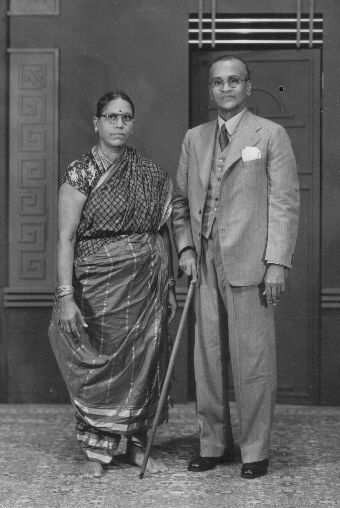A popular rhetorical cliché used on the anniversaries of
Indian independence, inquires if indeed, we Indians are really free. This
cliché urges us to consider independence not as a single moment in time, but as
a process towards realizing a utopian society free of all social evils and
problems. It would not be out of place therefore, to ask a similar question of
Goan liberation, and stress that liberation cannot mean a single moment in
time, but must necessarily be seen as a process, of our deepening commitment to
the democratic project.
The introduction of Indian democracy to Goa has been an
interesting process. Unfortunately however, it has also meant the abandonment,
or erasure of the Portuguese language in Goa. It should be stressed however,
that the learning of Portuguese by the contemporary Goan, is not unconnected
with the larger project of greater democratization of Goan society. On the contrary,
the fulfillment of the democratic project is critically tied to more Goans
learning and using the Portuguese language.
 To wholly understand the significance of this argument, it is
essential that we underline a well-rehearsed argument; colonialism in any part
of the world, and this holds true for Goa as well, was not merely the result of
unilateral foreign domination. On the contrary, colonialism persisted thanks to
the participation of local elites in the colonial project. Thus, as English ensured access to power in
the colonial British-Indian administration, and education in English models of
education ensured participation in the power forms of the British Empire, so
too in Goa, the adoption of Portuguese was critical to gaining power not merely
in the administrative and political sphere, but also in the social. Righting
this balance of power is critical to the democratic project.
To wholly understand the significance of this argument, it is
essential that we underline a well-rehearsed argument; colonialism in any part
of the world, and this holds true for Goa as well, was not merely the result of
unilateral foreign domination. On the contrary, colonialism persisted thanks to
the participation of local elites in the colonial project. Thus, as English ensured access to power in
the colonial British-Indian administration, and education in English models of
education ensured participation in the power forms of the British Empire, so
too in Goa, the adoption of Portuguese was critical to gaining power not merely
in the administrative and political sphere, but also in the social. Righting
this balance of power is critical to the democratic project.
More critically, and moving beyond the possibly restricted
frames of the Goan Catholic, knowledge of Portuguese was critical to the
maintenance of control over the State administration as well as State
documentation of land rights. Not a few family, and caste group, fortunes were
made by virtue of this restricted access to the language in colonial Goa. Even
though English has now replaced Portuguese as a State language; as the
continuous stream of persons perusing land records in the State archives in
Panjim would indicate, Portuguese continues to be critical to being able to
assert, and mask, claims to land. Today, when subaltern groups in contemporary
Goa face even an greater threat of access to land rights, it would be a strategic error to allow control of the interpretation
of Portuguese language documents and laws, to be based in the hands of just the
few, largely ‘upper’ caste, groups that have resumed learning the Portuguese
language.
Finally, is the argument that rests on the recognition that the
emergence of equality is facilitated when there is parity in representational
power. While a number of Portuguese scholars work on Goan history and society,
it is extremely difficult to find Goan scholars who work on explaining
Portuguese society, and its history unrelated to Goa. When we are able to
effectively build up this band of scholars, who can represent the workings of
the Portuguese to Goa, India, and the world; and engage in Portugal’s press and
academy, with their representations of Goa; then we would lay the definitive foundations
for greater equality between the two spaces. To do this however, requires that
the Goan learn Portuguese.
For these reasons therefore, the learning of Portuguese by
the contemporary Goan, is an essential component of our democratic project that
the action of the Indian Union in December 1961 sought to forward.
(Published in the commemorative section of the O Heraldo 19 Dec 2011)
